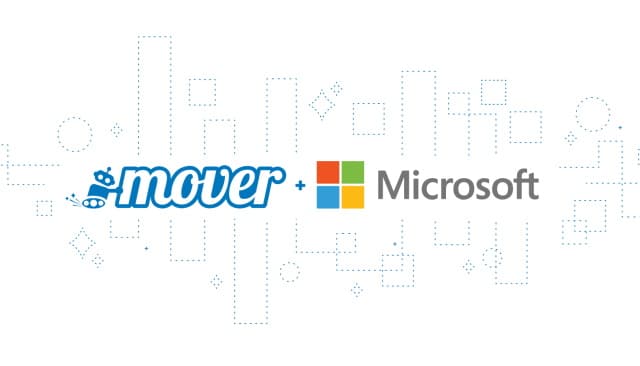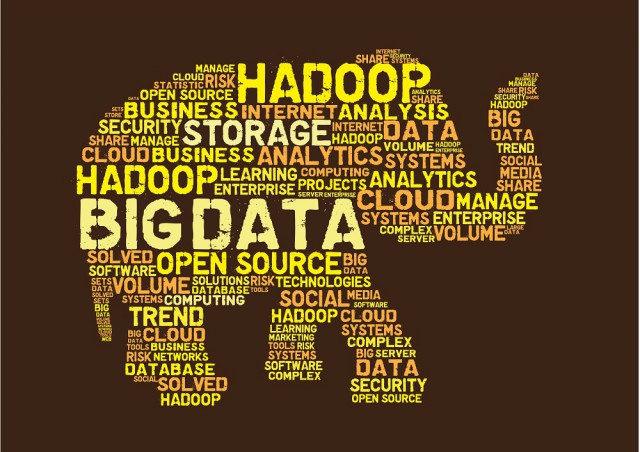
Trustwave launches advanced threat detection for Azure
As increasing numbers of businesses shift to cloud and multi-cloud environments, securing systems becomes a much more complex task.
For Microsoft Azure users Trustwave is launching new services to bolster threat monitoring, detection and response natively on the platform.

How automation can contribute to cloud security [Q&A]
Attacks on cloud systems often take advantage of misconfigurations, something which can easily go undetected.
Can today's security operations teams use automation and leverage advanced analytics to adapt to the current, cloud-based threat landscape and maintain organizational safety?

Microsoft awarded Pentagon's controversial JEDI contract
Microsoft has beaten Amazon to win the controversial $10 billion Joint Enterprise Defense Infrastructure (JEDI) cloud contract from the US Department of Defense.
A year ago, Microsoft employees were trying to discourage the company from bidding for the contract over concerns that the technology is develops could "be used for waging war". The DoD confirmation that the "contract will address critical and urgent unmet warfighter requirements for modern cloud infrastructure" will do nothing to calm these fears.

New ERP solution aims at smaller businesses
Enterprise resource planning software is something that's usually been the preserve of large organizations. But the benefits of efficiently managing company financials, inventory, sales, and customer relationships that it can offer apply to all businesses.
Priority Software has recognized this and is launching a starter ERP package aimed at small and medium organizations.

Microsoft buys cloud migration tool Mover to simplify switching to OneDrive
With a seemingly endless array of cloud storage services to choose from, you may well find that you want to switch allegiances at some point. Jumping from one service to another can be a pain, but with its purchase of Mover, Microsoft has just made it much easier to make the move to OneDrive.
Details of the deal have not been revealed, but Microsoft is keen for people to use the service to migrate from one several supported cloud providers to either OneDrive or SharePoint.

Microsoft launches two new open source projects for developers -- OAM and Dapr
Continuing its embracing of open source, Microsoft has today announced two new open source projects. The first is Open Application Model (OAM), a new standard for developing and operating applications on Kubernetes and other platforms
The second project is Dapr (Distributed Application Runtime), designed to make it easier to build microservice applications. Microsoft says that both OAM and Dapr "help developers remove barriers when building applications for cloud and edge".

New platform aims to cut shadow IT use and cloud waste
Shadow IT is a problem for enterprises as it leaves them open to attack but also to waste from idle cloud resources.
Aiming to cut both shadow IT and unguarded cloud sprawl, CloudBolt is launching a new platform for the provisioning and management of computing and Kubernetes resources.

Lessons learnt from over a decade of Hadoop
Back in 2006 Apache Hadoop emerged and soon began to revolutionize the nascent world of big Data. It’s one of the key factors that helped shape a new industry and -- with the cloud -- helped drive a raft of new consumer industries and business services.
But the data lakes of Hadoop became a challenge to manage, and many Big Data and analytical projects became more of a quagmire than a sparkling lake of truth. What’s more the number compute engines overpopulated. They were operationally complex and demanded specialized skills to maintain. Those data lakes became very disparate compute engines, sharing the same storage whilst they operated disparate workloads. It became a mess. Managing them with the tools available was no picnic.

Enhanced platform expands AIOps and multi-cloud monitoring
AIOps SaaS platform OpsRamp is launching an updated version that delivers enhancements to its OpsQ event management and intelligent correlation machine learning models.
In addition it introduces new multi-cloud infrastructure monitoring capabilities for Amazon Web Services and Google Cloud Platform, along with new synthetics capabilities to improve digital customer experiences.

Cloud platform allows graphics-intensive apps to be delivered from the browser
Despite the fact that businesses are migrating to the cloud, most have desktop applications they still rely on. In many cases these are graphics intensive, like CAD or video editing, requiring GPU support.
Virtual application delivery platform Cameyo is releasing an updated version with support for GPU-accelerated applications, allowing them to be delivered from the browser.

How to use Windows 10's Cloud Download recovery feature
The Windows 10 20H1 update (or Windows 10 May 2020 Update) is due for release in the first half of next year, and one of the biggest new features being touted by Microsoft is the Cloud Download recovery option.
This new recovery method is an alternative to the relatively slow "imageless" recovery in which a new copy of Windows is created from the existing installation. The Cloud Download option can not only be significantly faster, but it is more reliable as there is no chance of it being impeded by a corrupt Windows installation.

Network-based solution offers SMBs enterprise-class security
A new network-based internet security solution from Comcast is specifically engineered to help small businesses effectively manage the growing risk of cyberattacks.
Comcast Business SecurityEdge works to protect devices connected to a business' Wi-Fi network against existing and emerging internet-related threats, including malware, ransomware, phishing and botnet infections, without requiring additional hardware or software beyond the Comcast Business Internet modem.

Cloud-based security module helps protect systems and ensure compliance
Protecting sensitive data and meeting compliance rules is an issue for all companies. A new cloud-based module offers on-demand encryption to allow businesses to meet their security needs.
The hardware security module (HSM) from nCipher Security is called nShield and, delivered as a service, can be used in cloud-first strategies, selective cloud migration, or to add HSM capacity to handle workload spikes.

Multi-cloud is fastest growing enterprise technology
Enterprise adoption and deployments of multi-cloud technology have grown 50 percent year-on-year according to a report from continuous intelligence specialist Sumo Logic.
As customers adopt multi-cloud, Kubernetes adoption has significantly risen too with enterprises backing the container solution to drive their multi-cloud strategies. According to the study 20 percent of customers in AWS-only environments use Kubernetes.

A primer on migrating SQL Server 2008/2008 R2 databases to the Azure cloud
System and database administrators are now being forced to do something about legacy SQL Server 2008 and 2008 R2 database applications. The reason is the end of Extended Support in July 2019. Extended Support will also end for its common companion Windows Server 2008 and 2008 R2 in January 2020. Upgrading to the latest versions is always an option, of course, but Microsoft is providing an attractive alternative when upgrades are not viable or cannot be cost-justified: Migrate the database to the Azure cloud and get three more years of Extended Security Update support at no additional charge over the standard virtual machine pricing.
This article highlights important considerations for migrating mission-critical legacy SQL Server 2008/R2 databases to the Azure cloud to help administrators make more informed decisions. Among the key considerations is knowing which options are and are not available.
